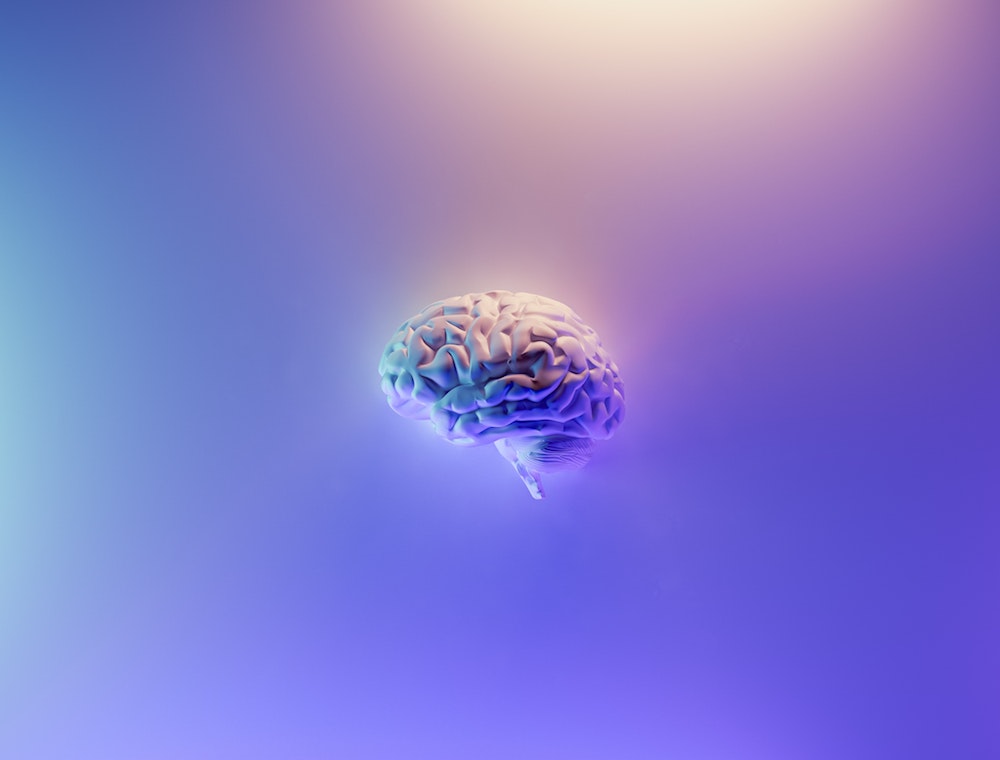
The term “neuroplasticity”—the idea that the brain is a highly complex and adaptive organ that is can rewire itself in response to our experiences—is becoming more widely used in the lifestyle space.
It’s a complicated-sounding noun to describe a fairly simple concept: our experiences, interactions and environment are constantly working to reshape our brains.
So, when we engage in practices that promote happiness and well-being, our brains change in ways that make these states more easily attainable (and the opposite is also true).
I’ve recently become fascinated by the idea of bliss, so today I want to share what I’ve learned about the changes that have occurred in your brain when you’ve arrived at a place where you’re experiencing a relatively consistent state of bliss.
First, let’s define what we mean by “bliss.” This is a state of profound joy and contentment that is often described as a feeling of peace, love, and interconnectedness with the universe (sounds pretty awesome, right?).
It’s a sense of oneness with everything, a feeling of being at home in the world, and a deep understanding of the interconnectedness of all things.
So what happens to your brain when you experience this state of bliss on a regular basis? Studies have shown that people who practice meditation, mindfulness, and other techniques that promote well-being have brains that are different from those who don’t engage in these practices.
One example of a person who achieved a state of permanent bliss through meditation is Matthieu Ricard, a Buddhist monk and author. Ricard has been called the “happiest man in the world” due to his consistently high levels of self-reported well-being and low levels of negative emotions.
Brain imaging studies of Ricard’s brain have shown increased activity in the left prefrontal cortex, an area associated with positive emotions and happiness, and decreased activity in the right prefrontal cortex, an area associated with negative emotions and sadness.
Here are more characteristics of a blissful brain:
Increased gray matter in the prefrontal cortex: The prefrontal cortex is the area of the brain that is responsible for decision-making, attention, and social behavior. Studies have found that people who meditate regularly have increased gray matter in this region, which is associated with better cognitive function and emotional regulation.
Decreased activity in the amygdala: The amygdala is the part of the brain that is responsible for the “fight or flight” response to stress. Research has found that people who meditate regularly have decreased activity in this region, which is associated with reduced anxiety and fear.
Increased activity in the insula: The insula is responsible for empathy and self-awareness. Studies have found that people who meditate regularly have increased activity in this region, which is associated with better emotional regulation and a greater sense of compassion.
Increased activity in the hippocampus: The hippocampus takes care of memory and learning. Research shows that people who meditate regularly have increased activity in this region, which is associated with better memory and cognitive function.
So, what does this mean for you? If you want to experience bliss more often, and maybe even all of the time, you can start by engaging in practices that promote well-being and neuroplasticity. These might include meditation, mindfulness, yoga, or other activities that promote relaxation and stress reduction. As you engage in these practices, your brain will begin to change in ways that make happiness and well-being more easily attainable.
While “bliss” is probably a great goal, I find that it probably put a lot of stress on the “seeker”.Just being content with whatever life brings your way does not seem quite as exciting as “bliss”. In fact looking for “bliss” seems just as foolish as searching for gold and possessions. Being in the moment, accepting the grey dull days and the small ups and down without looking for nirvana ,illumination, satori or ‘bliss”,is my way.
In my long life, I had a few brief moments of “bliss” as you described it in your blog. Timothy Leary and Aldous Huxley had similar experiences . I read about Zen monks reaching these levels but at the result of years of very long and arduous sessions of meditation.Not quite what modern humans are prepared to do to reach Nirvana